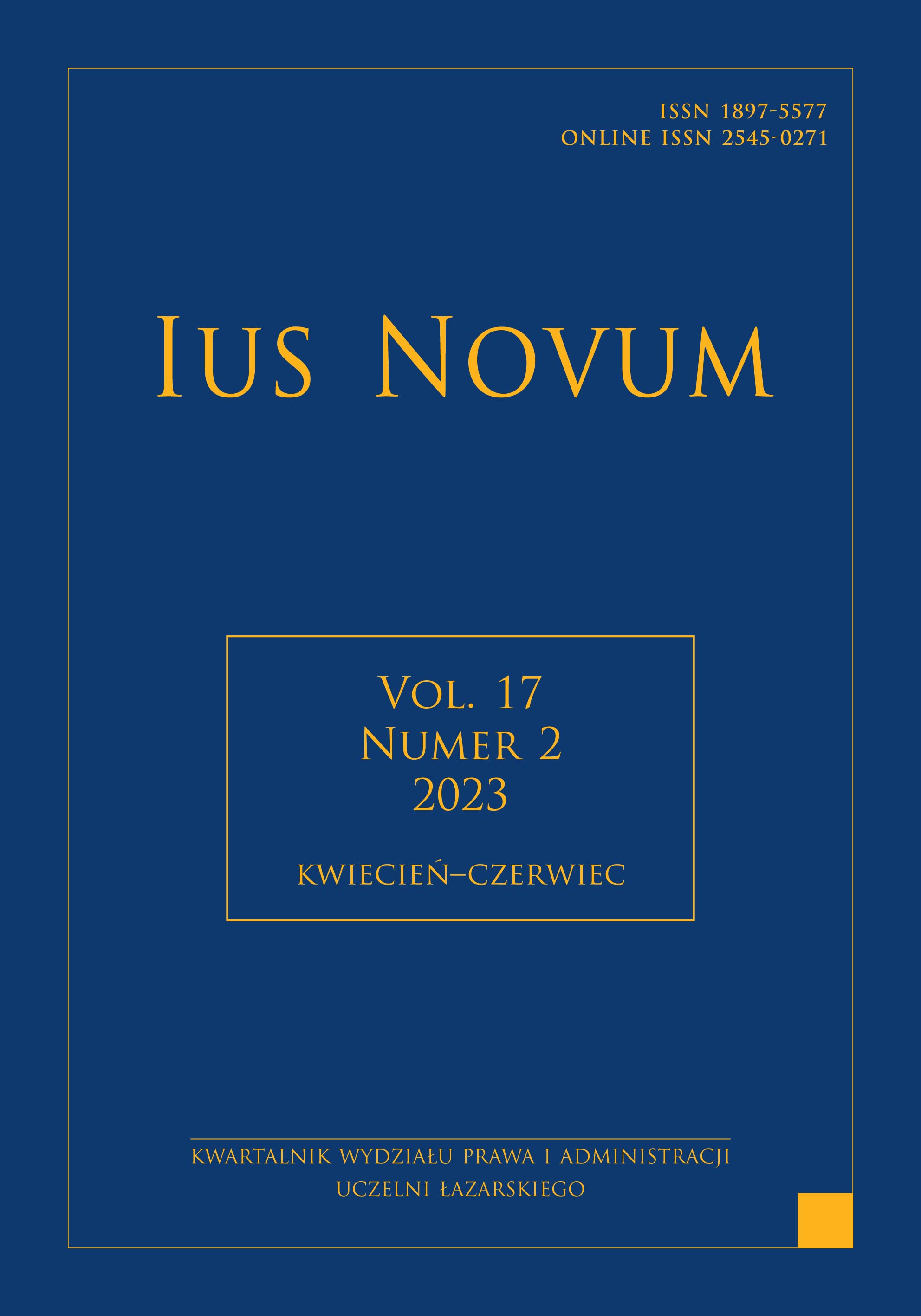Abstract
The article is of scientific research nature and it aims to analyse resolutions and rulings of
the Supreme Court Criminal Chamber concerning substantive criminal law passed in 2022
as a response to the so-called legal questions. The subject of the analysis covers such issues
as: the crime of failure to report a crime (Article 240 § 1 of the Criminal Code); suspension of
the statute of limitations for criminal offenses due to the Covid-19 pandemic; a student of the
Faculty of Public Order of the Academy of Internal Affairs in Szczytno as a person not serving
in the state security bodies; and revocation of a driving licence in the event its holder who is
a member of a military unit performing tasks outside the country commits an act consisting in
driving a motor vehicle under the influence of alcohol (Article 135(1) of the Road Traffic Act).
The basic scientific research aim is to evaluate the legitimacy of this body’s interpretation of
the regulations covering the legal issues referred to the Supreme Court for resolution. The main
research theses consist in showing that the so-called legal questions referred to the Supreme
Court play an important role in ensuring the uniformity of common and military courts’
judgements because the body’s stance is based on in-depth reasoning. The research findings
are original in nature as they creatively develop the interpretation contained in the resolutions
analysed. The research is mainly national in scope. The article is especially important for
science because it contains a deepened dogmatic analysis and a big load of theoretical thought,
as well as it is practically useful as it enriches the Supreme Court’s arguments or refers to
circumstances justifying different opinions.
References
Kluza J., Zawieszenie terminów przedawnienia karalności czynów zabronionych w czasie pandemii koronawirusa, „e-Palestra” 2020.
Królikowski M., Problemy z nowym zakresem obowiązku zawiadomienia o przestępstwie, „Forum Prawnicze” 2021, nr 4.
Lipiński K., Modyfikacje terminów przedawnienia karalności przestępstw, przestępstw i wykroczeń skarbowych oraz wykroczeń w związku z epidemią COVID-19, „Czasopismo Prawa Karnego i Nauk Penalnych” 2020, nr 2.
Lipiński K., w: J. Giezek (red.), Kodeks karny. Komentarz, Warszawa 2021.
Marszał K., Spoczywanie terminu przedawnienia w prawie karnym, „Ruch Prawniczy, Ekonomiczny i Socjologiczny” 1966, nr 2.
Mezglewski A., w: A. Mezglewski, M. Nowikowska, J. Kurek, Prawo o ruchu drogowym. Komentarz, Warszawa 2020.
Mozgawa M., w: idem (red.), Kodeks karny. Komentarz, Warszawa 2019.
Mozgawa M., w: idem (red.), Kodeks karny. Komentarz zaktualizowany, LEX/el. 2023.
Stefański R.A., Spoczywanie biegu przedawnienia, w: Kodeksie karnym, w: Interdyscyplinarność – w nauce najciekawsze rzeczy dzieją się na styku różnych dziedzin. Księga jubileuszowa Profesor Małgorzaty Król-Bogomilskiej, Warszawa 2021.
Stefański R.A., Zatrzymanie prawa jazdy jako środek przymusu w postępowaniu karnym, w: T. Grzegorczyk,
D. Świecki (red.), System Prawa Karnego Procesowego. Środki przymusu, t. IX, Warszawa 2021.
Wilk A., Glosa uchwały SN uchwale z dnia 1 lipca 2022 r., I KZP 5/22, „Orzecznictwo Sądów Polskich” 2023, nr 1.
Wróbel W., Zmiana normatywna i zasady intertemporalne w prawie karnym, Kraków 2003.
Zgoliński I., w: V. Konarska-Wrzosek, Kodeks karny. Komentarz, Warszawa 2020.
Żylińska J., Prawny obowiązek zawiadomienia o niektórych przestępstwach (art. 240 k.k.), „Prokuratura i Prawo” 2015, nr 10.

This work is licensed under a Creative Commons Attribution-NonCommercial-NoDerivatives 3.0 Unported License.

